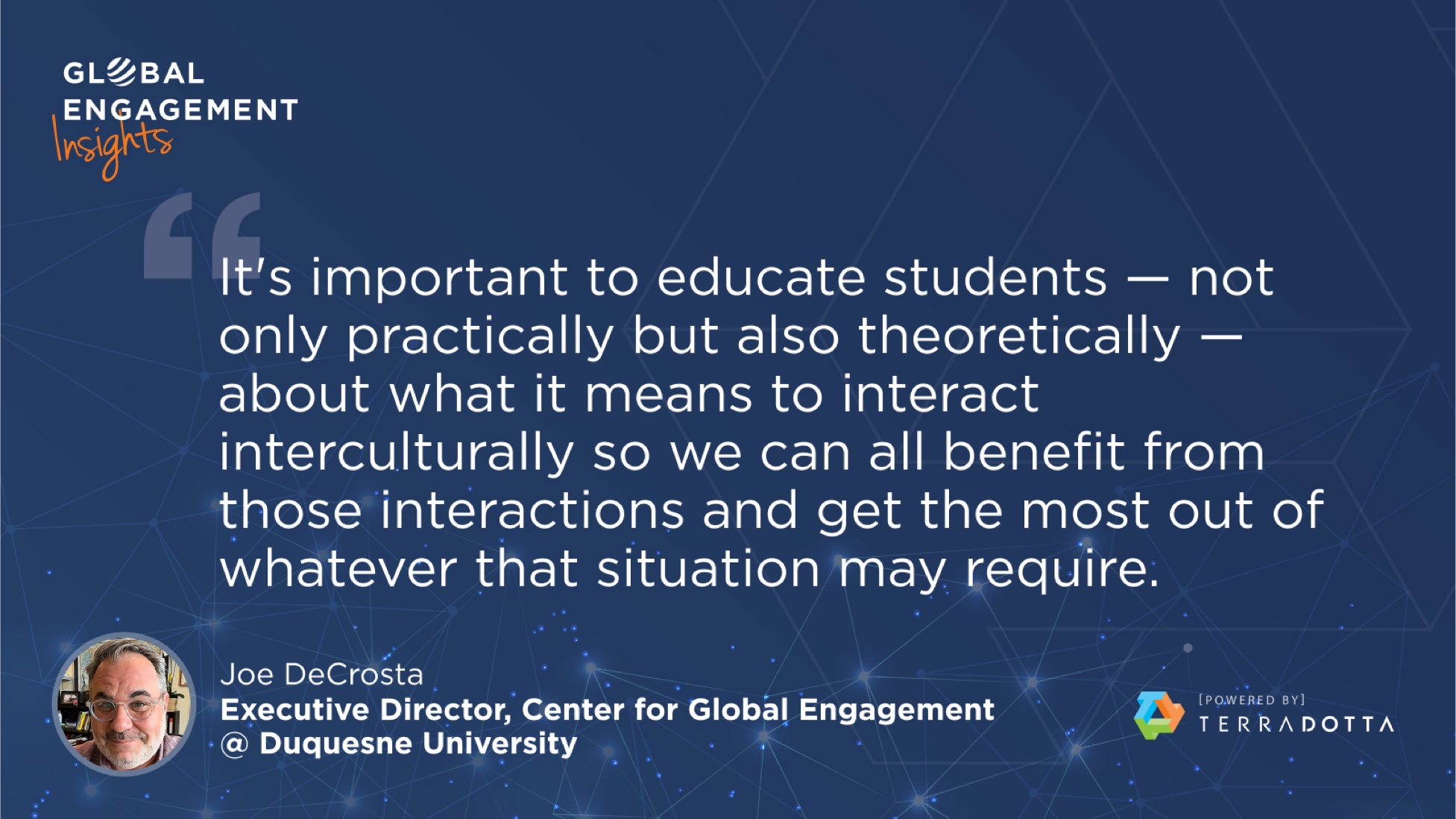We often hear putting ourselves in someone else's shoes is the tried-and-true way to understand what they are going through. But learning to look at the world that way and approaching people in that manner takes time and sometimes requires the assistance of trained professionals, such as educational workers.
Therefore, universities around the world create international programs that enable students to study abroad and with students from different historical and cultural backgrounds, which will undoubtedly add to their personal growth and career development.
In this episode of Global Engagement Insights, Joe DeCrosta, the executive director of the Center for Global Engagement at Duquesne University, joins our host Ron Carson to discuss internationalization in higher education. Joe explains what these programs include, how they benefit the faculty and students, how he got his colleagues on board with the idea, and their future endeavors.
Name: Joe DeCrosta
What he does: Joe is the executive director of the Center for Global Engagement at Duquesne University.
Company: Duquesne University
Noteworthy: The Center for Global Engagement encompasses all things international. That includes the admission and recruitment of international students, immigration issuance, and advising student programming. In addition, Joe and his team manage the study abroad programming, both semester-long and short-term, for the university. Joe also oversees the Global English Institute, the university's ESL division for incoming international students or students looking to improve their English.
Where to find Jean: LinkedIn
“Internationalization is encouraging our campus community to think outside our campus, region, state, and national borders. We are trying to help students discover the world in different ways to help it become more intertwined into the fabric of our culture here on campus.
And that's through learning while students are studying abroad, whether in the classroom, interacting with our national students, or learning new languages. It's also how we translate our mission and philosophy to the rest of the world. [...]
It's important because our students, whatever they tend to do in life, are going to be working in a multicultural context, whatever that may mean. Whether they're working abroad or whether they're working locally in the healthcare field, they're going to have an interaction with people who come from different cultural backgrounds.”
“We're in an office at a medium-sized university. My role is administrative and thinking about the bigger picture, but I also have a lot of daily contact with students and some of their concerns and simple requests. And I'm glad to do that still, although I have staff members doing that probably more often.
I have the advantage of seeing what students are thinking, what they're worried about, and what they're concerned about. And being able to translate that to my colleagues on the faculty and/or the administration, and connecting all of those pieces has benefited us over the years and helped us create a more solid operation in the end.”
“People have their requirements, teaching obligations, research obligations, and somebody may be going for a third-year review or tenure, and it's difficult to commit themselves to a venture like this.
But people stick it in their back pocket and say, 'Yeah, I'd like to do some work with you.' They'll often give me a heads-up and say, 'When the time is right, I'd like to talk to you some more.' And to be quite honest, higher education moves a bit more slowly, and we have to take that into consideration too.
And then, global crises will hit us when unexpected, as we've all experienced in the last few years. But even before then, economic crises hit certain regions of the world, [as do] political crises. So, you're often pulled back and have to recenter throughout these different events. And so, it's a tug-and-pull scenario over time.
But with the right approach and support of certain colleagues, those champions on campus, the support of your administration and especially the upper administration, it does happen over time, and that groundswell starts to emerge.”
